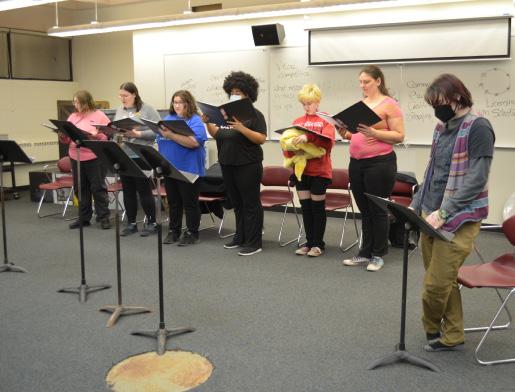
2 minute read
Realities of Greek life at Plattsburgh
from Issue 3
BY BRYN FAWN Opinions Editor & PR Chair
Greek life is one of the staples of the “college experience,” or as so many believe to be the case. Highschoolers look forward to the day they get to pledge or rush and join their own little circle on campus.
Advertisement
Yet, for SUNY Plattsburgh, Greek life could be leagues better.
Greek life pushes away poorer students. Applying to a fraternity or sorority may cost money, and most organizations charge dues which can cost $2,000 or more. That doesn’t account for rent if a member lives in the organization’s building.
Thousands of students have taken out hundreds of thousands of dollars worth of loans, burying them in debt, and adding on a few more thousands of dollars each year or even each semester may be impossible for poorer students.
Greek life also has the issue of being overwhelmingly white, not just at SUNY Plattsburgh, but nationwide. On social media platforms such as TikTok and Instagram, fraternities and sororities share their rushes to the online public and most of the participants are white or at the very least white-passing.
Alpha Epsilon Phi, SUNY Plattsburgh’s largest sorority and Greek life organization, has photos of their members on their national Instagram. A majority of members included in photos are white.
Alpha Epsilon Phi members who were tabling at the Angell College Center Feb. 21 declined to be interviewed.
While there are many Greek organizations on campus that are focused on diversity, those groups still make up the minority of all Greek life. At least three groups, Theta Nu Xi, Sigma Iota Alpha and Omega Phi Beta, have become dormant in recent years. Another group, Lambda Pi Upsilon, has a measly three members currently. This leads to questions about maintaining diversity within Greek life.
Greek life is also often divided along the gender binary. Fraternities are for men, while sororities are for women. There have been some cases of coed organizations across the country. Yet often, this leaves transgender and non-binary individuals at a loss, for fear of discrimination.
“Brotherhood” and “sisterhood” are large selling points of joining an organization, but what about those who don’t identify as a “brother” or “sister?” Of course, being off the binary does not entail that they cannot label themselves as a brother or sister, but the idea of uniformity can push out queer individuals.
There are no queer-specific Greek life organizations on Plattsburgh’s campus, although many organizations don’t turn away queer members.
Uniformity is also a large problem, as it can create an echo-chamber or hive mentality. Members are encouraged to spend money to purchase shirts, pants, hats, blankets and more with their insignias of their specific organization on the item.
SUNY Plattsburgh skews toward having more sororities and female Greek life members than men.
From SUNY Plattsburgh’s GPA report of spring 2022: “16% of SUNY Plattsburgh full-time undergraduates are affiliated with a fraternity or sorority. 17% of women and 13% of men.”

Men in fraternities were sta-









